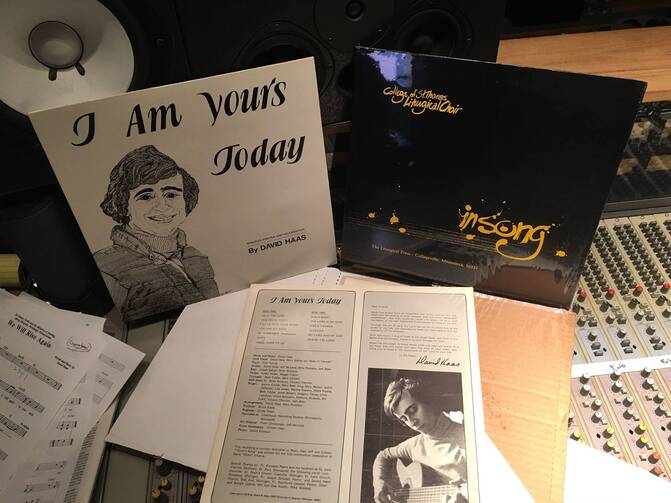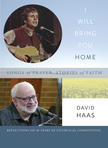Want to compose new music for Mass? Learn from David Haas’s story.
Remembering a day serving meals to the homeless, David Haas writes:
That evening as I was driving home, the relentless mantra in my mind and heart was ‘Blessed are you! Holy are you!’ This is how Christ sees the broken and poor…. This is how I, from that point forward, was called to see, honor, and embrace the poor, in an ongoing invitation…. When I got home…‘Blest Are They’ came pouring out of me.
In I Will Bring You Home, Haas gathers 132 songs from among his most widely known pieces, like “Blest Are They,” “We Are Called,” “Now We Remain” and “You Are Mine,” and others not as familiar. He gives a brief reflection on each song and on the Scriptures and people who have inspired and accompanied him along his 40-year journey composing music for Catholic liturgy.
Yet this book is more than just an autobiography of one of the most prolific and significant liturgical composers of the post-Vatican II English-speaking church. It is a manual for anyone who wants to learn how to connect the liturgy to life’s daily joys and sorrows. It is a guidebook for aspiring liturgical composers to learn that, more often than not, “liturgical composition is more craft than inspiration” and a reminder to liturgical ministers that “God’s cause is not to be found in the feeding of [one’s] ego, but in the feeding of the hungry.” A prayerful reading of the lyrics provided for each song makes this a kind of breviary, complementing our daily prayer with rich texts grounded in Scripture and, like the psalms, reflecting every human emotion. These texts are enriched by Haas’s collaborations with several remarkable Protestant text writers, including Mary Louise Bringle, Adam Tice, Shirley Erena Murray and Timothy Dudley-Smith.
I Will Bring You Home is a manual for anyone who wants to learn how to connect the liturgy to life’s daily joys and sorrows.
Most striking, however, is that on nearly every page, we meet yet another of Haas’s family members or his myriad friends, colleagues or communities who have encouraged his vocation. His love for them is clear. In pulling back the curtain on his own life of faith, on the composing process and on the relationships that permeate the music he writes, Haas invites us deeper into a community of faith that, in Christ, truly has something to sing about.
This article also appeared in print, under the headline “Connecting Liturgy to Life,” in the June 11, 2018, issue.











